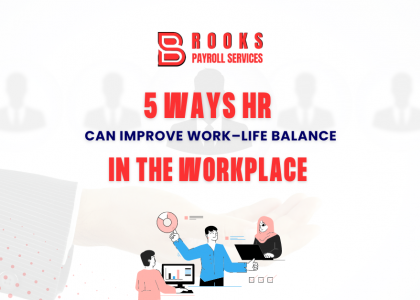Introduction
Human Resources (HR) is the backbone of any organization, responsible for managing its most valuable asset – its people. To ensure that HR practices align with the organization’s goals and legal requirements, HR audits play a pivotal role. In this blog, we will explore what HR audits are, their importance, types, the process involved, and the benefits they offer.
Defining HR Audit
An HR audit is a comprehensive examination of an organization’s HR policies, procedures, practices, and systems. It assesses whether these components are in compliance with legal regulations, industry standards, and the organization’s objectives. The primary aim is to identify areas of improvement and ensure that HR practices contribute to the overall success of the company.
The Importance of HR Audits
- Legal Compliance: HR laws and regulations are continually evolving. Conducting regular audits helps an organization stay compliant with changing labor laws, reducing the risk of costly legal battles and fines.
- Risk Management: Audits uncover potential HR-related risks, such as discrimination or harassment claims, and allow for proactive measures to mitigate these risks.
- Enhanced Productivity: By evaluating HR processes, organizations can identify inefficiencies and make necessary adjustments to improve employee productivity.
- Cost Reduction: Identifying and rectifying inefficiencies can lead to cost savings, particularly in areas like recruitment, training, and benefits administration.
- Improved Employee Satisfaction: A well-executed HR audit can reveal areas where employee satisfaction can be enhanced, leading to a more engaged and motivated workforce.
Types of HR Audits
- Compliance Audit: Focuses on ensuring that HR practices adhere to legal and regulatory requirements. This includes areas such as employment contracts, wage and hour laws, and workplace safety.
- Performance Audit: Evaluates the effectiveness of HR programs and initiatives, such as training, employee development, and performance management.
- Policy and Procedure Audit: Assesses the alignment of HR policies and procedures with organizational goals and industry best practices.
- Compensation and Benefits Audit: Reviews the organization’s compensation structure, benefits packages, and equity to ensure they attract and retain top talent.
The HR Audit Process
The HR audit process typically involves the following steps:
- Planning: Define the scope and objectives of the audit. Determine which areas of HR will be examined and assemble an audit team.
- Data Collection: Gather relevant documents, policies, and data related to HR practices. This may include employee files, handbooks, and payroll records.
- Analysis: Review the collected data to assess compliance, effectiveness, and efficiency. Identify areas of concern or improvement.
- Recommendations: Develop a list of recommendations and action plans based on the findings of the audit.
- Implementation: Put the recommendations into action, making necessary changes to HR policies and practices.
- Monitoring: Continuously monitor and evaluate the impact of the changes implemented.
Benefits of HR Audits
- Risk Mitigation: Identifying and addressing compliance issues early reduces legal and financial risks.
- Efficiency and Cost Savings: Streamlining HR processes leads to cost reductions and improved efficiency.
- Enhanced HR Practices: Regular audits foster continuous improvement in HR practices, leading to better employee satisfaction and retention.
- Strategic Alignment: Ensures that HR practices align with the organization’s strategic objectives.
- Competitive Advantage: Effective HR practices help attract and retain top talent, giving the organization a competitive edge.
Conclusion
In a rapidly changing business landscape, HR audits are not just a luxury but a necessity. They help organizations maintain legal compliance, reduce risks, and enhance their HR practices, ultimately contributing to their success. By embracing HR audits as a proactive measure, organizations can foster a healthier, more productive, and efficient work environment while staying ahead in an ever-evolving business world.










